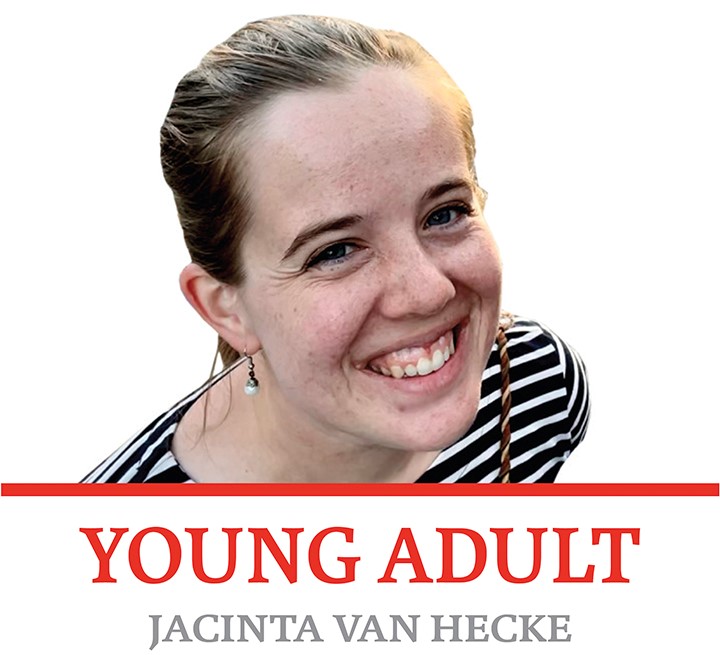Young Adult
It was already nearly dark on July 3 when my friend and I headed to Waukesha to see the fireworks. Neither of us had been there before, we arrived only a few minutes before the show was scheduled to start and we found streets that were thoroughly lined with parked cars. We tried a side street, which turned out to be even more crowded and pulled into a driveway to turn around when the owner of the home flagged us down and invited us to park there. Though the act was simple and small, my friend and I were both floored by his generosity and were gushing about how kind he was as we walked the very few blocks to the park, arriving exactly on time for the beginning of the show.
I love fireworks. I obviously love that they are big and gold and spectacular. But I also love that we have repurposed instruments of war to be symbols of celebration, freedom and peace. At this park, in particular, the parallels were striking. My friend and I sat at the edge of an enormous field, sloping up into a hill on our left, which was visible mainly because of the crowds of people wearing glow-bracelets. In front of us, the field ended in a tree line behind the fireworks launching pad. I found myself strangely moved by the glimpses I caught of the shadowy trees lit by the fireworks and obscured by the billows of smoke they left at the ground level. It looked like something out of a war movie. Indeed, what we were experiencing was a collection of the same material circumstances of which a battle is made: people gathered in a field to light up their firepower. Of course, out event was utterly different because the objective was utterly different: not conflict but celebration.
Every time I watch fireworks, I think of a short scene from the HBO miniseries about World War II, “Band of Brothers.” In the midst of an absolutely brutal stretch of battle, in the Ardennes forest in the dead of winter and under enemy shelling, one character is lying in his foxhole and remembering the fireworks shows of his childhood. For that brief moment, in the midst of all the horror of war, he takes delight in “the most spectacular display of firepower I had ever seen.” The firepower he watches there in the Ardennes forest is the instrument of unthinkable destruction and horror, displayed in the next scene. But we use those very same materials to make something beautiful and inspiring.
Silly as it may sound to spend all this time reflecting on the nature of fireworks, I have found them to be a striking metaphor for the work of the Holy Spirit in our lives. Who we are as people is created good and twisted by sin. Our desires, personality traits, even our basic needs can all get skewed in the brokenness that came with the fall. The way we were created for love can become a desperate grasping, a use of other people, a forgetfulness of the only love that can truly satisfy. With every twist away from who we were created to be, our lives become more broken, more bound by compulsions, more capable of hurt and destruction. However, God’s plan is not to erase who we are but to redeem it. The material of our souls, capable of sin and horror, is also capable of the heights of holiness to which we are called. Every movement away from sin and toward God, who is love, makes our lives less like the weapons of destruction and more like the beauty of fireworks. Those movements can be costly and difficult. Sometimes, it can feel like being trapped in a foxhole or fighting for your life in the smoke of war. But the ground we are gaining and the holiness we are called to is becoming the person God created us to be. As much as it might not feel like it in the midst of the process, the excellence of his creation looks like freedom, beauty, joy and love.
That beauty is something to be shared. I have to imagine every person in that crowd was remembering the horrible tragedy that struck a Waukesha community celebration less than two years ago. But that memory lent a new depth of meaning to the fact that everyone still came together to celebrate. The fireworks show had an undercurrent of defiance: that the reality of sin and evil cannot keep us from goodness and from what God calls us to. The presence of each individual added up to a community that refuses to be destroyed by tragedy. Every movement we make toward love not only matters but has a real impact on the world around us. The man who let us park in his driveway may have thought nothing of his own generosity, but his action had an outsized impact on our hearts, making us feel provided for and free to enjoy the gift of the fireworks.
With each step toward goodness, even if we cannot see it in the news, our hearts, our communities and even our world will become a little less like the firefights of war, and a little more like the beauty of fireworks.

